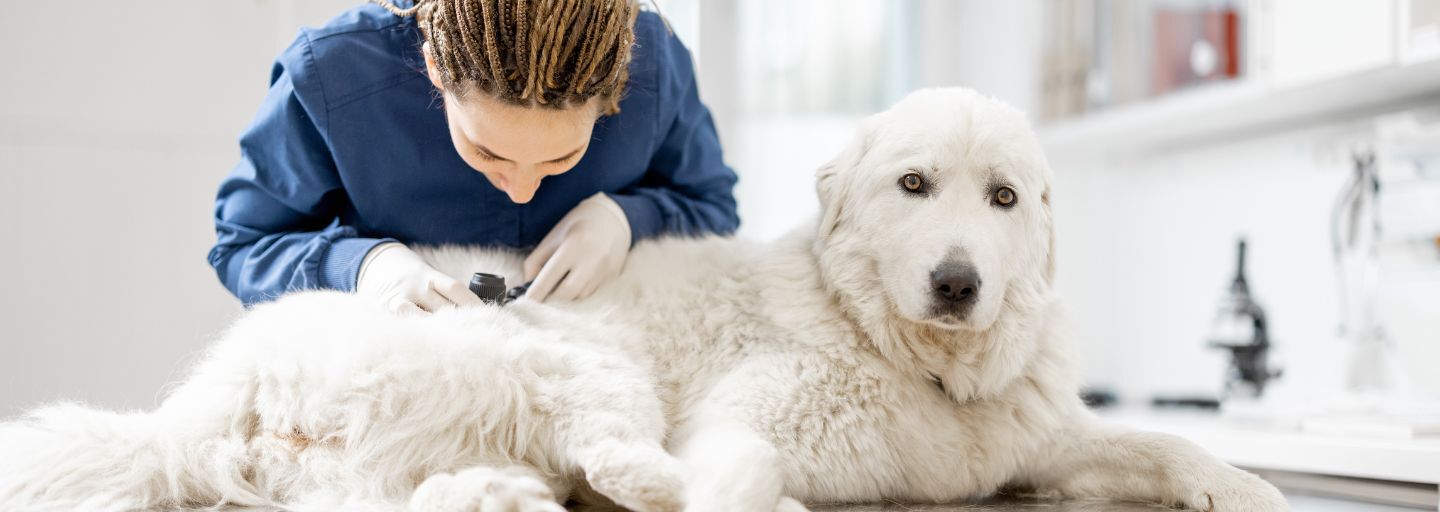As responsible pet owners, it is crucial to be aware of potential dangers that our furry friends may encounter. While dogs are generally curious creatures, their encounters with animals, insects and pests can lead to serious health issues. The importance of knowing the signs to look for and when to seek veterinary care is critical. Below are some examples of these:
Snakes & Spiders
Snakes & Spiders can pose a significant threat to our pets, especially when they venture into areas where snakes or spiders are prevalent. It is important to take some preventative steps, things that can help are:
- Check your dog's bedding regularly.
- Keep your dog's outdoor area clean and uncluttered.
- Mowing lawns regularly, keeping gardens tidy and not overgrown.
- De-cobwebbing and even professional pest sprays can be useful in the management of spiders. Please note that keeping your pets safe during professional pest sprays is very important. Be sure to follow instructions on pack or speak with a professional pest spray company, regarding your pet's safety as they may need to avoid the sprayed area for a period of time.
It is essential to recognize the signs of a snake or spider bite, which may include; Sudden pain or redness and swelling at the bite site, bleeding or puncture wounds, difficulty breathing or panting excessively, lethargy or weakness, reduced appetite, vomiting or diarrhea & lastly dilated pupils or changes in behaviour.
It is crucial to act swiftly if you suspect your dog has been bitten by a snake or spider and here are some immediate actions to take:
- Keep your dog calm and restrict their movement.
- Remove any collars or constrictive items that may impede breathing or circulation.
- Do not attempt to treat the bite at home, as it may worsen the situation.
- Contact your veterinarian immediately for guidance and consultation. Snake & spider bites can be life-threatening, and prompt veterinary care is essential. For snake bites veterinarians can administer antivenom, which is crucial in neutralizing the snake's venom. All spider bites should be taken seriously as there is no antivenom available and anaphylactic reactions can occur. Veterinarians will also assess the severity of the bite and provide appropriate treatment. Supportive care may also be needed, things such as pain management and intravenous fluids. Your veterinarian can monitor your dog's progress and address any complications that may arise.
Bees & Wasps
Nothing intrigues your dog like the sound of a ‘buzzzzzz’ zooming past them and whilst bees & wasps might sound like something to play with, they’re certainly not. If stung, the site area may swell and this is the sign of a severe allergic reaction, however this may not happen to all dogs. Signs your pets has been stung can include:
- Yelping, whining, limping
- Redness or swelling
- Excessive licking, chewing, scratching
- Drooling if bite site is near the mouth
- Hives or pain to the sting site
- Vomiting or diarrhea
- Difficulty breathing
If you suspect your pet has been stung by a bee or wasp, it is best to contact your veterinarian immediately for guidance and consultation.
Fleas
Unfortunately, fleas in Australia can be an all-year-round problem, however their activity heightens during the warmer months typically from September – March. It is very important that when you treat your pets, or are having trouble with fleas, you also treat their environment. This may have to mean flea bombs, professional carpet cleaning, all bedding washed in hot water and dried in direct sunlight, and garden spraying, once or twice during warmer weather. Otherwise, any flea product that you use will be constantly running an uphill battle when fleas continue to jump onto your pet from their surroundings.
Even when your pet is completely protected from fleas, you may still see the occasional flea that they have picked up from any number of places:
- Out walking where other pets or native animals have been
- Direct contact with other pets with fleas
- From their immediate environment (house & yard, not just bedding)
- The list goes on! It is just good to keep this in mind, as perhaps if your pet comes into these situations, you can wash them straight away so that your home does not become infected.
Signs that your dog has picked up fleas can include, scratching, biting or chewing of skin, red and irritated skin, hair loss or small scabs & visible adult fleas and flea dirt (flea faeces/digested blood).
It is best to use a flea control product all year round, these can include liquid spot-on treatments (applied topically to the skin at the back of the neck) or a tablet form. You can also speak to your veterinarian regarding suitable products and or treatment for flea allergy dermatitis (FAD) which is an allergic reaction to the flea bites.
Ticks
The Paralysis Tick is the most commonly known tick in Australia, however other ticks including the Bush Tick, Cattle Tick and Brown Dog Tick are also a concern for our pets. Regularly check your pet for ticks, especially after outdoor activities and promptly remove any ticks found. Use tick preventative control products, however it is important to note that the use of control products does not guarantee prevention of tick paralysis because ticks are not killed immediately after attachment. Daily searching is vital!
Signs your dog has been bitten by a tick may include finding an engorged tick attached to your dog or a tick crater which will appear like a round, raised, red swollen are with a crater in the middle. If found, it is best to contact your veterinarian immediately for guidance and consultation.
Worms
There are many different types of worms, however the most common worms in dogs are: Tapeworms, Roundworms, Hookworms and Whipworms. There are several warning signs that may indicate your dog has worms, including weakness, listlessness, diarrhea or vomiting, weight loss despite a good appetite, and an abnormally swollen stomach. It is best to administer regular deworming treatments as recommended by your veterinarian and practice good hygiene to prevent contamination. Your veterinarian can also check for worms during your pet's annual checkup and can test specifically for heartworm.
Ensuring the safety of our beloved pets is a responsibility that should never be taken lightly. By being aware of the signs to looks for and by taking preventative measures, we can protect our furry friends from potential harm. Remember, a proactive approach to pet safety is the key to a happy and healthy companion. Here at Purina, we have a range of Flea and Worming products that can help you and your furry friends. Click here to find out more.



